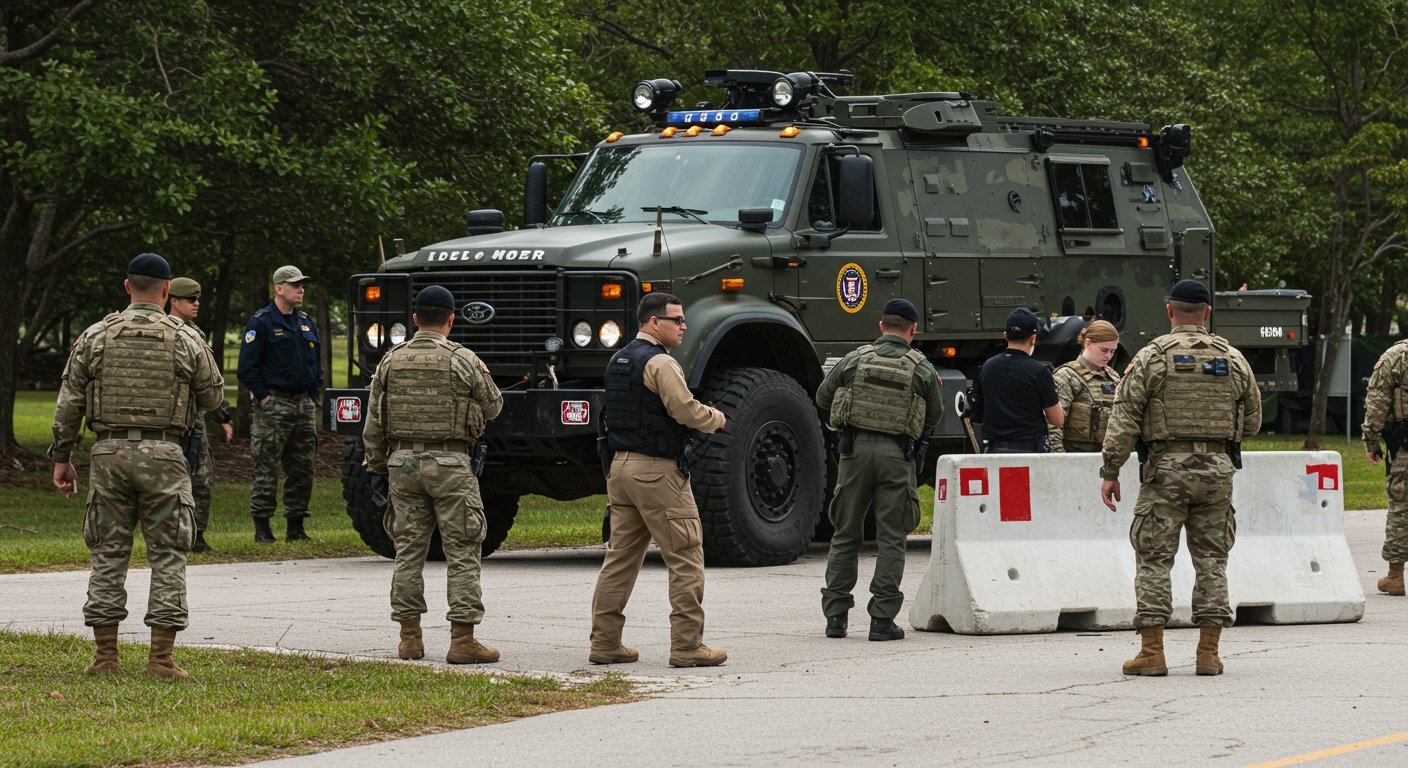Washington D.C. – The United States Department of Defense (DoD) has sanctioned the deployment of up to 700 military personnel to provide crucial logistical, administrative, and clerical support for operations conducted by U.S. Immigration and Customs Enforcement (ICE) across three key states: Florida, Texas, and Louisiana.
This authorization is aimed at augmenting federal immigration enforcement efforts, allowing ICE agents to focus on their core law enforcement duties while military personnel handle support functions. The directive explicitly stipulates that the deployed troops will not be involved in direct law enforcement activities, such as arrests or custodial operations. Their role is strictly defined as providing behind-the-scenes assistance to facilitate ICE operations in these regions, which have seen significant activity related to immigration enforcement.
Details of the Deployment
The authorized deployment involves a specific distribution of personnel across the three states. Up to 200 service members are slated to be assigned to support ICE operations within Florida. A similar contingent, also capped at up to 200 personnel, is designated for deployment to Louisiana. The largest contingent of this authorization is directed towards Texas, where up to 300 military personnel may be assigned to support ICE functions. This strategic allocation reflects the varying operational demands and needs identified in each state.
The nature of the support will encompass a range of duties. Logistical support could include transportation coordination, supply management, or infrastructure maintenance. Administrative and clerical functions would likely involve processing paperwork, data entry, records management, and other tasks essential to the efficient operation of immigration enforcement processes. By offloading these tasks, the deployment is intended to enhance the overall capacity and effectiveness of ICE personnel on the ground.
Political Context in Florida
The authorization comes amidst a political climate where immigration enforcement remains a prominent issue, particularly in states like Florida. Florida Governor Ron DeSantis and state lawmakers have consistently voiced strong support for robust federal immigration enforcement efforts. Governor DeSantis has been a vocal proponent of measures aimed at addressing undocumented immigration within the state.
In a press release issued on May 12, Governor DeSantis reiterated his administration’s commitment to these efforts, stating that the state is “ready to do even more” regarding the removal of undocumented immigrants. This statement underscores the state government’s alignment with and encouragement of intensified federal actions, providing a backdrop to the federal decision to deploy support personnel to Florida, among other states.
Broader Implications and Related Issues
The deployment of military personnel in a support capacity for civilian law enforcement agencies like ICE is a significant measure that highlights the scale of the resources being directed towards immigration enforcement. While the DoD’s role is limited to non-enforcement support, such deployments can draw attention and spark debate regarding the use of military assets in domestic operations and the broader approach to immigration policy.
The context of immigration enforcement also involves collaboration mechanisms between federal agencies and state or local authorities. One such mechanism mentioned in discussions surrounding these efforts is the 287(g) program. Under 287(g) agreements, ICE partners with state and local law enforcement agencies, allowing designated state and local officers to perform certain immigration enforcement functions after receiving specific training and supervision from ICE. While the DoD deployment is distinct from 287(g) agreements, both illustrate different facets of the multi-layered approach to immigration enforcement involving various governmental entities.
Perspectives on these policies vary across the political spectrum. U.S. Rep. Maxwell Frost, a Democrat, is among the figures who have been involved in or commented on discussions surrounding immigration policy and enforcement measures. The differing viewpoints contribute to the ongoing national conversation about how best to manage immigration flows and enforce existing laws.
Conclusion
The authorization for up to 700 Department of Defense troops to provide logistical, administrative, and clerical support to ICE in Florida, Texas, and Louisiana represents a notable step in federal efforts to bolster immigration enforcement capabilities. With personnel numbers allocated specifically for each state – up to 200 in Florida, up to 200 in Louisiana, and up to 300 in Texas – the deployment aims to free up ICE agents for core duties. The explicit restriction against troop involvement in direct law enforcement activities underscores the defined support nature of this mission. The decision unfolds within a broader political context marked by calls for increased enforcement, particularly from state leaders like Florida Governor Ron DeSantis, who has expressed a readiness for further action. As this deployment proceeds, it remains a focal point in the ongoing national dialogue about immigration enforcement strategies and the resources dedicated to them.





